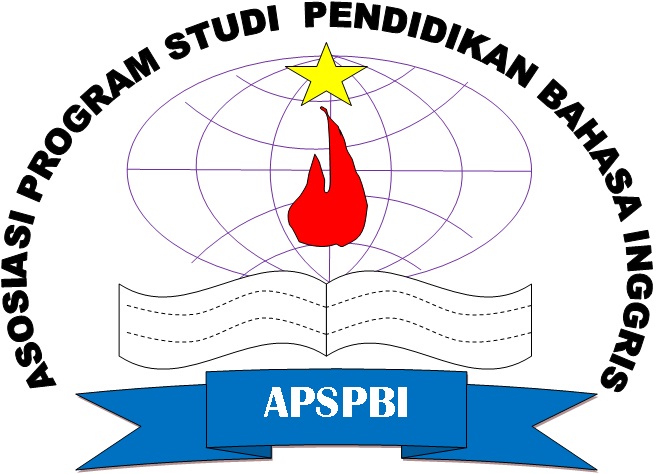Student’s self-confidence in practicing speaking during online learning: up or down?
DOI:
https://doi.org/10.28918/erudita.v1i1.4312Keywords:
Digital media, Online learning, Self-confidence, Speaking, Qualitative researchAbstract
The research aims to investigate students' self-confidence in online speaking practice during the Covid-19 pandemic. The synchronous and asynchronous platforms of learning have been used to accommodate the learning process thus students can practice communicating in non-face-to-face meetings. This qualitative research documents the learning experiences of six EFL students of the English Department at a public university in Central Java, Indonesia. By taking a purposive sampling technique, the researchers started the study by collecting participants’ data through an interview. The results of this study prove that four participants experienced a decrease in self-confidence due to the following factors. First, the practice of speaking through digital media makes it difficult for them to practice face-to-face communication. Second, the lack of understanding in the debate material, and the influence of social relations in a hostile home environment (parental variation). However, two students who have strong and high resilience, motivation, self-efficacy, can overcome these challenges.
References
Abidah, A., Hidaayatullaah, H. N., Simamora, R. M., Fehabutar, D., & Mutakinati, L. (2020). The impact of Covid-19 to Indonesian education and its relation to the philosophy of “Merdeka Belajar.” Studies in Philosophy of Science and Education, 1(1), 38–49. https://doi.org/10.46627/sipose.v1i1.9
Amelia, M. (2019). Whatsapp goes to classroom: Using Whatsapp to foster students’ speaking skill in speech. International Conference on Education, 4, 153–158. https://ojs.iainbatusangkar.ac.id/ojs/index.php/proceedings/article/view/2173
Anthony, N. N. Z., Othman, M., & Ismail, L. (2018). Anxiety and critical thinking in debate. International Journal of Academic Research in Business and Social Sciences, 7(14), 428–439. https://doi.org/10.6007/ijarbss/v7-i14/3679
Bailenson, J. N., Yee, N., J. B., & Guadagno, R. E. (2008). Technology as relationship enabler: Transformed social interaction in mediated interpersonal communication. In E. A. Konijn, S. Utz, M. Tanis, & S. B. Barnes (Eds.), Mediated Interpersonal Communication, (pp.75–214). Routledge. https://doi.org/10.4324/9780203926864
Bandura, A. (1995). Self-efficacy in changing societies. Cambridge University Press.
Bhuana, G. P., & Apriliyanti, D. L. (2021). Teachers’ encounter of online learning: challenges and support system. Journal of English Education and Teaching, 5(1), 110–122. https://doi.org/https://doi.org/10.33369/jeet.5.1.110-122
Brown, H. D. (2004). Language testing book: Principles and classroom practice. Pearson education.
Chandra, Y. (2021). Online education during COVID-19: perception of academic stress and emotional intelligence coping strategies among college students. Asian Education and Development Studies, 10(2), 229–238. https://doi.org/10.1108/AEDS-05-2020-0097
Connelly, F. M., & Clandinin, D. J. (1986). On narrative method, personal philosophy, and narrative unities in the story of teaching. Journal of Research in Science Teaching, 23(4), 293–310. https://doi.org/10.1002/tea.3660230404
Edwards, J. A. (2001). The transcription of discourse. In D. T. Deborah Schiffrin & H. E. Hamilton (Eds.), The Handbook of Discourse Analysis (pp. 321-348). Springer, Cham. https://doi.org/10.1007/978-3-030-56711-8_3
Famularsih, S. (2020). Students’ experiences in using online learning applications due to COVID-19 in English classroom. Studies in Learning and Teaching, 1(2), 112–121. https://doi.org/10.46627/silet.v1i2.40
Febriani, R. D., Hariko, R., Yuca, V., & Magistarina, E. (2021). Factors affecting student’s burnout in online learning. Jurnal Neo Konseling, 3(3), 32–38. https://doi.org/10.24036/00567kons2021
Ferreira-Meyers, K., & Martins, J. (2020). The use of Whatsapp in today’s mobile language teaching and learning. ITM Web of Conferences, 33, 03007. https://doi.org/10.1051/itmconf/20203303007
Hafis, M., & Widya, R. (2021). Psychological factors of EFL students on speaking performance. JIIP-Jurnal Ilmiah Ilmu Pendidikan, 4(4), 266–271. http://jiip.stkipyapisdompu.ac.id/jiip/index.php/JIIP/article/view/268/169
Halliday, M. A. K. (1978). Language as social semiotic: The social interpretation of language and meaning. Edward Arnold. https://books.google.co.id/books/about/Language_as_Social_Semiotic.html?id=SjVxAAAAIAAJ&redir_esc=y
Hattani, H. A. (2021). Communicative language teaching in support of critical thinking: the role of in-Class Debate. Revue Linguistique et Référentiels Interculturels, 2(1), 41–49. https://revues.imist.ma/index.php/LIRI/article/view/27504
Karal, H., Çebi, A., & Turgut, Y. E. (2011). Perceptions of students who take synchronous courses through video conferencing about distance education. Turkish Online Journal of Educational Technology, 10(4), 276–293. https://eric.ed.gov/?id=EJ946636
Khoshaim, H. B., Al-Sukayt, A., Chinna, K., Nurunnabi, M., Sundarasen, S., Kamaludin, K., Baloch, G. M., & Hossain, S. F. A. (2020). Anxiety level of university students during COVID-19 in Saudi Arabia. Frontiers in Psychiatry, 11(December), 1–7. https://doi.org/10.3389/fpsyt.2020.579750
Khuan, W. S., Koh, P., & Lin, C. (2021). Emotional intelligence as predictor of students’ academic performance. ESTEEM Journal of Social Sciences and Humanities, 5(1), 56–66. https://ejssh.uitm.edu.my
Lee, A. R., & Bailey, D. R. (2020). Learning from experience in the midst of covid-19: Benefits, challenges, and strategies in online teaching. Call-Ej, 21(2), 176–196. https://pesquisa.bvsalud.org/global-literature-on-novel-coronavirus-2019-ncov/resource/en/covidwho-827571
Manan, M., Jeti, L., & Adnan, A. (2021). Influence of parent involvement to children’s learning interest during corona virus pandemic. Jurnal Obsesi: Jurnal Pendidikan Anak Usia Dini, 5(2), 2050–2058. https://doi.org/10.31004/obsesi.v5i2.1145
Mardiah, H. (2020). The use of E-Learning to teach English in the time of the Covid-19 Pandemic. English Teaching and Linguistics Journal (ETLiJ), 1(2), 49–55. https://doi.org/10.30596/etlij.v1i2.4894
Martin, P. R. R., & White, J. R. (2005). The language of evaluation. Palgrave Macmillan.
Muin, A., & Aswati, A. (2019). Effects of socio-affective strategies on students’ self-confidence in classroom speaking activities. Loquen: English Studies Journal, 12(2), 91. https://doi.org/10.32678/loquen.v12i2.2178
Nanlohy, F. M. (2020). Case study: The use of the British parliamentary debate system and critical thinking. Matai International Journal of Language Education, 1(1), 37–49. https://ojs3.unpatti.ac.id/index.php/matail/article/view/2771
Ng, C. H. (2020). Communicative Language Teaching (CLT) through synchronous online teaching in English Language preservice teacher education. International Journal of TESOL Studies, 2(2), 62–73. https://doi.org/10.46451/ijts.2020.09.06
Nguyen, U. N. T., & Nguyen, L. V. (2021). Resilience to withstand covid-19 crisis: Lessons from a foreign language institution in Vietnam. Call-Ej, 22(2), 40–55. http://callej.org/journal/22-2/Nguyen-Nguyen2021.pdf
Oweis, T. I. (2021). Improving EFL students’ speaking skills through debating techniques. Psychology and Education, 58(2), 3331–3342. http://www.psychologyandeducation.net/pae/index.php/pae/article/view/2583
Palys, T. (2008). Purposive sampling. In L. M. Given (Ed.), The SAGE encyclopedia of qualitative research methods (pp. 697–698). Sage Publication. https://books.google.com/books?id=y_0nAQAAMAAJ&pgis=1
Permatasari, N., Rahmatillah Ashari, F., & Ismail, N. (2021). Contribution of perceived social support (peer, family, and teacher) to academic resilience during COVID-19. Golden Ratio of Social Science and Education, 1(1), 01–12. https://doi.org/10.52970/grsse.v1i1.94
Pinnegar, S., & Daynes, J. G. (2007). Locating narrative inquiry historically: Thematics in the turn to narrative. In D. J. Clandinin (Ed.), Handbook of narrative inquiry: Mapping a methodology (pp. 3–34). Sage Publications, Inc. https://doi.org/10.4135/9781452226552.n1
Puspitasari, D., Nofianto, N., & Huda, M. I. (2021). Teacher’s strategies in survival speaking learning during COVID-19 pandemic. Leksika: Jurnal Bahasa, Sastra dan Pengajarannya, 15(1), 37. https://doi.org/10.30595/lks.v15i1.9469
Putra, R. W. P. (2021). Improving the students’ motivation in learning English through Google Meet during the online learning. English Learning Innovation, 2(1), 35–42. https://doi.org/10.22219/englie.v2i1.14605
Putri, A. A., & Rodliyah, R. S. (2021). EFL Students’ perception on the use of debate in speaking classroom. The Thirteenth Conference on Applied Linguistics (CONAPLIN 2020), 546(Conaplin 2020), 21–29. https://doi.org/10.2991/assehr.k.210427.004
Rahardjo, A., & Pertiwi, S. (2020). Learning motivation and students’ achievement in learning English: A Case study at secondary school students in the covid-19 pandemic situation. JELITA: Journal of English Language Teaching and Literature, 1(2), 56–64. https://jurnal.stkipmb.ac.id/index.php/jelita/article/view/65
Rodriguez-Dono, A., & Hernández-Fernández, A. (2021). Fostering sustainability and critical thinking through debate-a case study. Sustainability (Switzerland), 13(11), 1–24. https://doi.org/10.3390/su13116397
Rohmadi, K. A., & Indriani, L. (2020). An analysis of students’ inhibition level on synchronous class using video conferencing. Jurnal Review Pendidikan dan Pengajaran, 3(2), 349–357. https://doi.org/10.31004/jrpp.v3i2.1360
Ruing, F., & Mardiani, M. (2020). The Implementation of CIA (Creative, Innovative and Active) learning approach as a solution for the monotonous of online learning system in the Covid-19 pandemic era. The First International Conference on Economics, Business and Social Humanities, 1–16. https://doi.org/10.4108/eai.4-11-2020.2304605
Santi, T. K., & Widyasari, R. (2021). Character education: Analysis of self-regulated learning on systems online learning during the Covid-19 Pandemic. Budapest International Research and Critics Institute (BIRCI-Journal): Humanities and Social Sciences, 4(2), 3162–3169. https://doi.org/10.33258/birci.v4i2.2041
Siregar, I. K., & Lubis, R. U. (2021). Improving students’ speaking skill through debate. Journal of English Education and Linguistics, 2(1), 1–8. https://jurnal.stain-madina.ac.id/index.php/je2l/article/view/396
Skodol, A. E. (2010). The resilient personality. In J. W. Reich, A. J. Zautra, & J. S. Hall (Eds.), Handbook of adult resilience (pp. 112–125). The Guilford Press. http://ovidsp.ovid.com/ovidweb.cgi?T=JS&PAGE=reference&D=psyc7&NEWS=N&AN=2010-10101-000
Son, C., Hegde, S., Smith, A., Wang, X., & Sasangohar, F. (2020). Effects of COVID-19 on college students’ mental health in the United States: Interview survey study. Journal of Medical Internet Research, 22(9), 1–14. https://doi.org/10.2196/21279
Sugiyati, K., & Indriani, L. (2021). Exploring the level and primary causes of public speaking anxiety among English department students. Journal of Research on Language Education, 2(1), 57–66. https://doi.org/10.33365/jorle.v2i1.906
Suhendra, E. (2020). Parliamentary English debate within communicative language teaching context: A personal reflection. Journal of English Language Education, 3(1), 93–102. https://journal.uinmataram.ac.id/index.php/edulangue/article/view/2033
Suparlan, S. (2021). Factors contributing students’ speaking anxiety. Journal of Languages and Language Teaching, 9(2), 160–169. https://doi.org/10.33394/jollt.v9i2.3321
Suryaningrum, C. (2021). College student’s social anxiety: A study of the young people mental health in digital age. Jurnal Konseling dan Pendidikan, 9(1), 1-14. https://doi.org/10.29210/150100
Syamdianita & Maharia, A. C. (2020). Developing speaking skill through debating: Undergraduate EFL students’ perception. 2nd Educational Sciences International Conference (ESIC 2019) Developing, 432(Esic 2019), 22–26. https://doi.org/10.2991/assehr.k.200417.006
Sukimin, I. S., Rahmat, N. H., Sim, M. S., Arepin, M., Abidin, N.S.Z., & Haron, H. (2021). An investigation of mediational process in social learning during online language learning. International Journal of Asian Social Science, 11(5), 240–249. https://doi.org/10.18488/journal.1.2021.115.240.249
Teh, W. (2021). Communicative Language Teaching (CLT) in the context of online Learning: A literature review. International Journal of TESOL & Education, 1(2), 65–71. https://i-jte.org/index.php/journal/article/view/23
The Lancet. (2020). COVID-19: Fighting panic with information. The Lancet, 395(10224), 537. https://doi.org/10.1016/S0140-6736(20)30379-2
Wardani, W. K. (2018). The characteristics of anxious Students in speaking class. Journal of Foreign Language Teaching and Learning, 3(2), 60–73. https://doi.org/10.18196/ftl.3230
Wulanjani, A. N., & Indriani, L. (2021). Revealing higher education students’ readiness for abrupt online learning in Indonesia amidst COVID-19. Journal of Literature and Language Teaching, 12(1), 43–59. https://doi.org/10.15642/NOBEL.2021.12.1.43-59 REVEALING
Yaniafari, R. P., & Rihardini, A. A. (2021). Face-to-face or online speaking practice: A comparison of student’s foreign language classroom anxiety level. JEELS (Journal of English Education and Linguistics Studies), 8(1), 49–67. https://doi.org/https://doi.org/10.30762/jeels.v8i1.3058
Zhang, X., Dai, S., & Ardasheva, Y. (2020). Contributions of (de)motivation, engagement, and anxiety to English listening and speaking. Learning and Individual Differences, 79(March), 101856. https://doi.org/10.1016/j.lindif.2020.101856
Zhen, L., Nan, Y., & Pham, B. (2021). College students coping with COVID-19: Stress-buffering effects of self-disclosure on social media and parental support. Communication Research Reports, 38(1), 23–31. https://doi.org/10.1080/08824096.2020.1870445
Downloads
Published
How to Cite
Issue
Section
License
Copyright (c) 2021 Rozy Khanafiyah, Reza Adinul Akbar, Dewi Puspitasari

This work is licensed under a Creative Commons Attribution-ShareAlike 4.0 International License.















